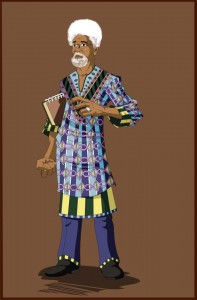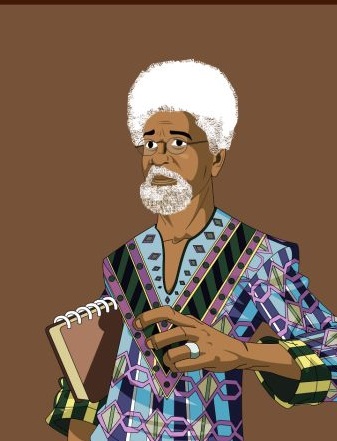
Mostafa Al Horr
On Monday 18 March 2013 Luxor hosted the opening of the Luxor African Film Festival. The opening was almost a carnival, starting at the Karnak temple, and was followed by movie screenings at the Cultural Palace, the Luxor Conference Hall and the Rowing Club.
The festival is organised by the Independent Shabab Foundation (ISF), which was founded in 2006 and aims at developing capable film artists across Egypt. According to the festival’s website, the idea was created by one of the ISF founders: “It was the writer Sayed Fouad’s idea as African films are almost never screened in Egypt.
Furthermore, Luxor hardly has any cultural or artistic events, and was therefore selected to de-centralise cultural or artistic events, which are always organised in Cairo and Alexandria.”
The festival is not run by the government, which is not usually the case for big cultural events in Egypt. However, the ISF cooperates with the government: “ISF started working on the festival in mid 2010 and the fruits of our efforts resulted in numerous partnerships, ranging from the Ministry of Culture in Egypt to international networks.” The first festival took place in February 2012.
The website states the festival’s main mission: “Luxor African Film Festival’s mission is to support and encourage African film productions and partnerships between the countries of the continent, through strengthening the humanitarian and political ties between the peoples of Africa in general and African artists in particular.”
They also want to slowly create an audience for African films, hoping that the festival will “contribute to the building of audience and critics of African cinema in Egypt, [with a goal] of at least 30% of the cinema-going public”. In addition, they believe that the festival is an opportunity to promote Luxor as a tourist location and encourage more people to visit.
The festival includes several competitions for both short and long films. For long films: “The Grand Nile Prize for Best Long Film ($10,000 and The Golden Mask of Tutankhamen), the Jury Prize for Long Film ($8,000 and The Silver Mask of Tutankhamen), and the Prize for Best Artistic Contribution in a Long Film ($5,000 and The Bronze Mask of Tutankhamen)”.
For short films: “The Grand Nile Prize for Short Film ($5,000 and The Golden Mask of Tutankhamen), the Jury Prize for Short Film ($4,000 and The Silver Mask of Tutankhamen), and the Prize for Best Artistic Contribution in a Short Film ($3,000 and The Bronze Mask of Tutankhamen).”
The festival accepts documentaries as well as fictional films. There are two conditions for submission, firstly that the entry is “an African production, by an African director with a plot in Africa or related to Africa”. Secondly, it has to be produced in the year preceding the Festival.
In addition, the festival also offers workshops: “The Luxor African Film Festival has three workshops, on Direction, Cinematography and Scriptwriting. 19 directors, photographers and scriptwriters, from 15 African countries, will participate in these workshops, in addition to 14 participants from Egypt.”
The workshops are run by three Egyptian filmmakers: Ahmed Abdalla (Direction), Hany Fawzi (Scriptwriting) and Kamal Abdel Aziz (Cinematography). The three workshops are to be supervised by Tunisian director Reda El Bahi.
The festival is set to continue till 24 March. The screenings will include movies from all over the African continent: from Senegal, Algeria, Morocco, Mali, Togo, Angola and other nations. Egypt is participating with six movies, one in the long film category (Coming Forth Day) and five in the short film category (On the Border, Paper Boat, Zakaria, Noor, and 41 Days).




